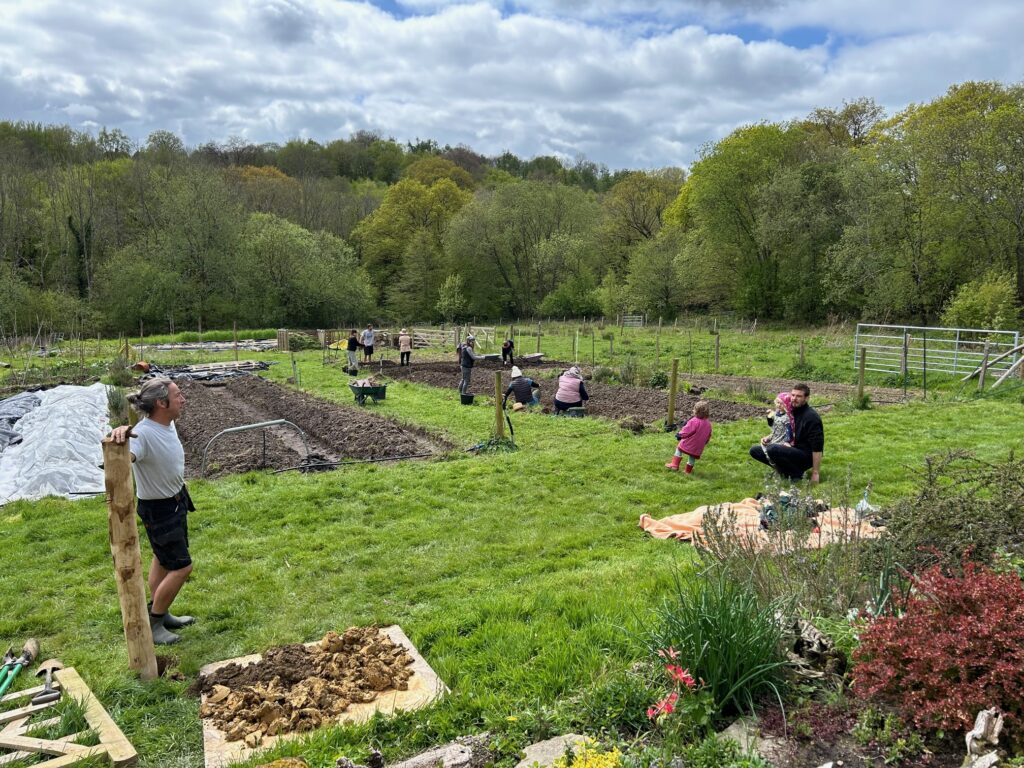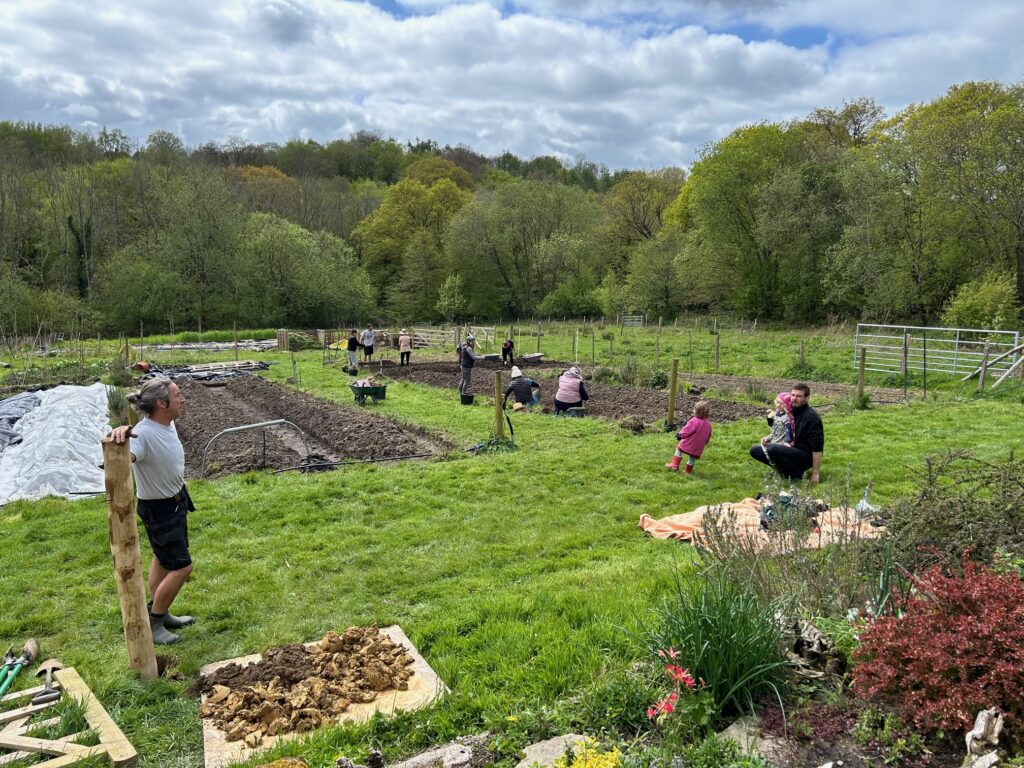
The community garden was a pilot project funded by FiPL to see how we might include our local community in our farming and growing practices. The initial plan was to have a focus group of 2-3 families however, demand soon outstripped this modest intention and the project adapted accordingly. The first day saw a group of 11 participants/families that had found their way to us and so it was decided to shift from the planned focus group of 2-3 families to a more inclusive “drop-in” format. This decision resulted in a total of 23 different individuals participating in various sessions over the spring and summer months through to an Autumn celebration in mid October. Responding to participants’ requests for alternative days, Monday sessions were introduced alongside the regular Saturday gatherings, both running from 10 am to 4 pm. This adjustment proved beneficial in accommodating more individuals within their busy summer schedules, one person continues to come on a Wednesday afternoon.
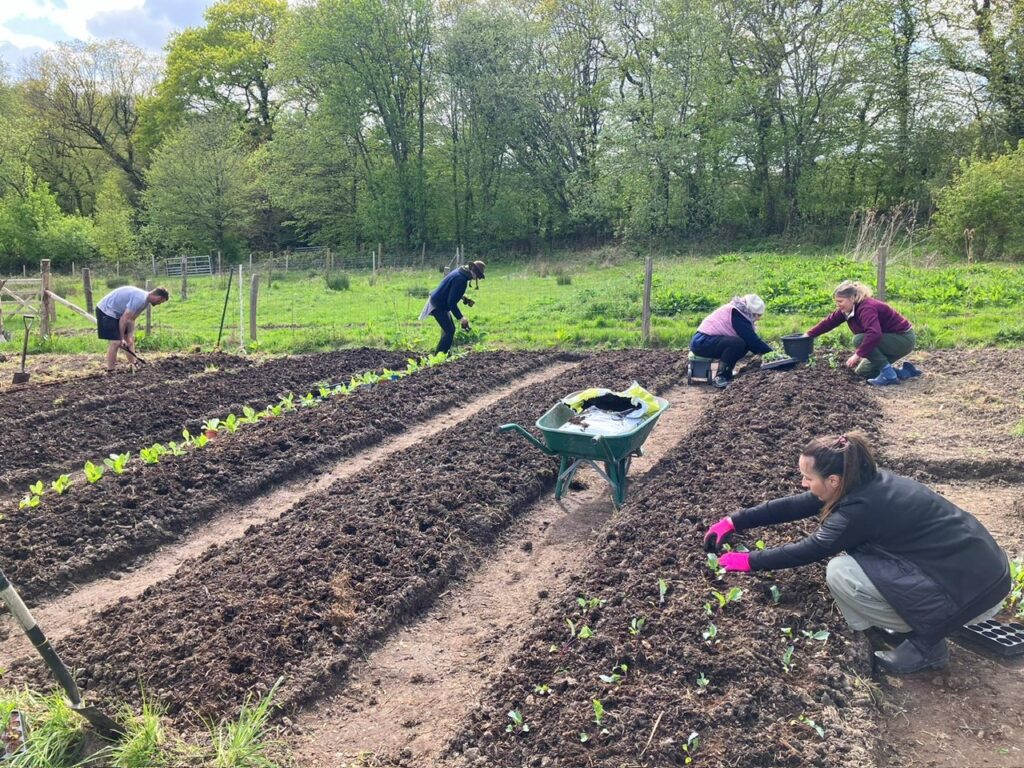
There were three gardeners employed in all, the first being Joanna the Biodynamic farmer and grower, on hand through every session and teaching Biodynamic as we went along. One very fit groundworker/gardener happy to dig out copious amounts of beds and pathways. This individual travelling from Hastings, has a history of drug addiction and severe ADHD, finding group activities difficult at first, after working alongside others outside over time he managed to integrate and could eventually join us for tea and cake in the group room. He has continued to be employed by the farm on an adhoc basis since. The other gardener from St Leonards was integral in all groups, very supporting of families and children, knowledgeable about growing and excellent at inclusivity and community building, she is currently on a BSL sign language course as a result of the community garden and is organising the BSL course we hope to hold at the farm. In addition to her role as gardener, she set up a WhatsApp group, has organised group visits to other places and is integral in the future growth of the community garden.
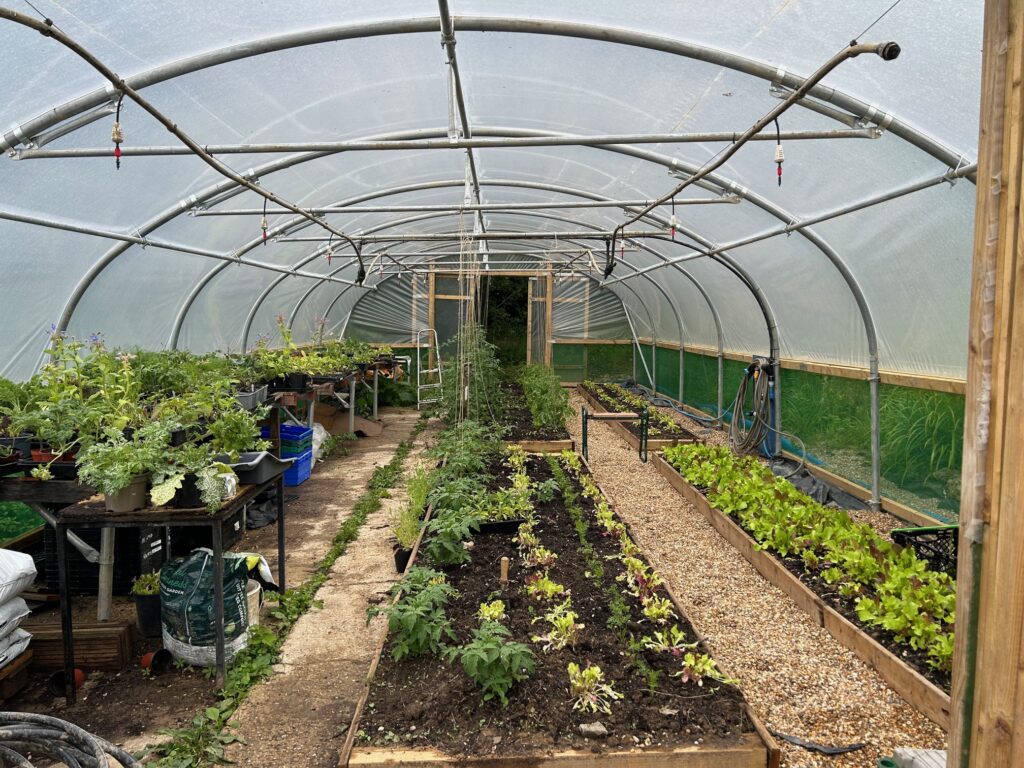
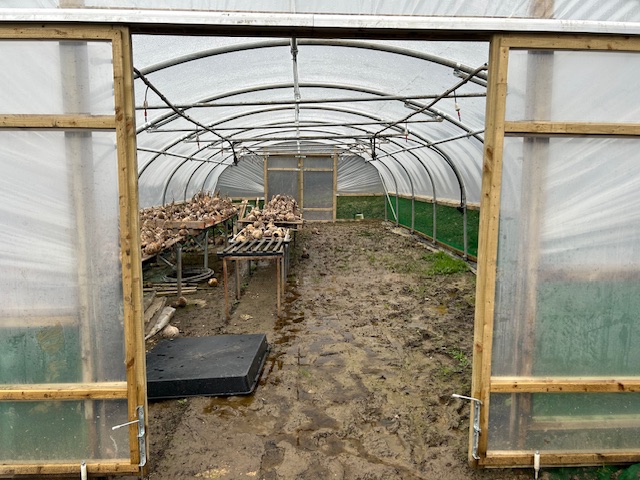
Over the course of six months the groups have been diverse, ranging from families with children to individual men and women. Group sizes fluctuated between one and eleven participants, typically averaging around 3-5 attendees based on factors such as school holidays, work commitments, weather conditions, and illness.
There were some planned works as a part of the project, such as getting the beds dug and created, the polytunnel ground and entrance sorted out and some raised beds added too. The growing areas and polytunnel have undergone significant transformation, evident in the photographic documentation capturing its progress. Participants have actively engaged in various activities, including weeding, planting, bed preparation, setting up pea and bean poles, attending Biodynamic PowerPoint presentations, participating in Horn manure stirrings and applications, compost creation, and applying compost preparations. Biodynamic Horn silica preparation and application. Other tasks such as polytunnel work, harvesting, and utilising Biodynamic teas for pest and disease control have also been undertaken. Closing down the beds for winter with compost, mulching and cover too.
The raised beds are particularly beneficial within the polytunnel for those with limited physical abilities and have been warmly welcomed as a valuable addition to the community garden.The raised beds for strawberries are created and ready, but we were too late for starting strawberries this year and so the beds will be ready for sowing next year.
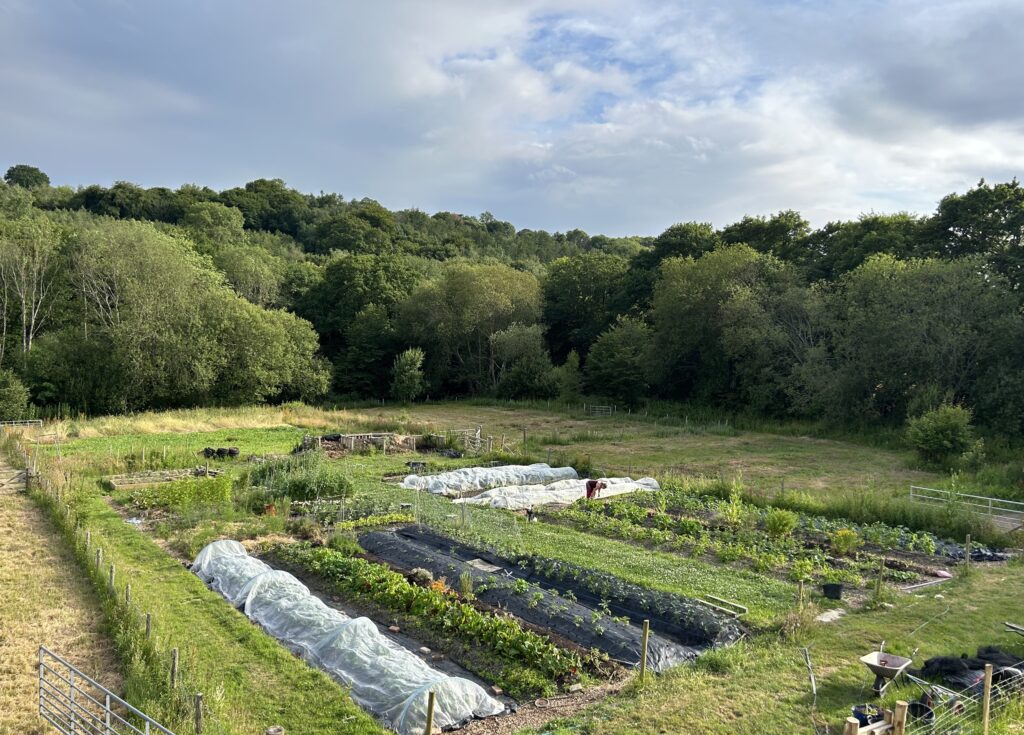
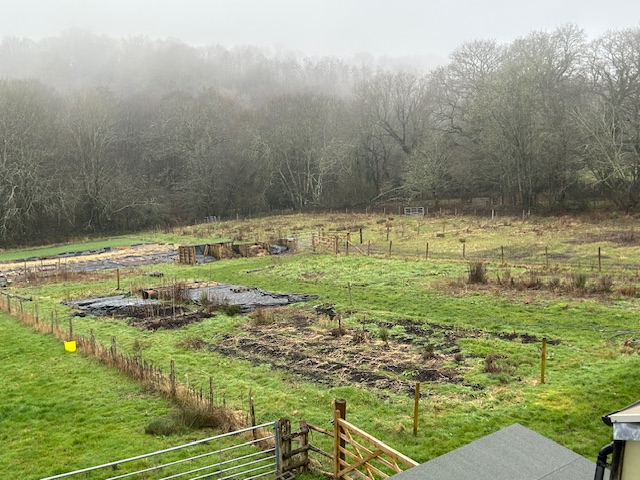
During the community garden we learned that a lot of the harder physical work such as digging over beds, creating beds and paths and preparing soil is too labour-some for many participants, that this needed to be done by the paid gardener/labourer and that the participants preferred to do jobs conducive to chatting as they worked such as weeding, planting and harvesting. They particularly liked learning about Biodynamic Gardening and the benefits of the farm setting from this practical perspective. We learned that biodynamics is of increasing interest to all gardeners who wish to grow without pesticides, with herbal teas and without chemicals. People want nutritious non harmful food for their families and want to see that no harm is being done to the surrounding habitat in the process. We learned that there is a rise in people wishing to grow medicinal herbs as well as food as people wish to be more in control of their own health. That it isn’t always so easy to accommodate children, but there are ways when you are creative. We also learned that elderly people wish to garden and that simple adaptations such as raised beds, concrete paths, wheeled seats and long handled tools are of vital importance. We learned that to continue with the community garden a more formal set up would be required, a dedicated gardener would be needed to keep up with the growing and labour workload, alongside the facilitator. There was a heavy dependence on a lot of free time of the hosts.
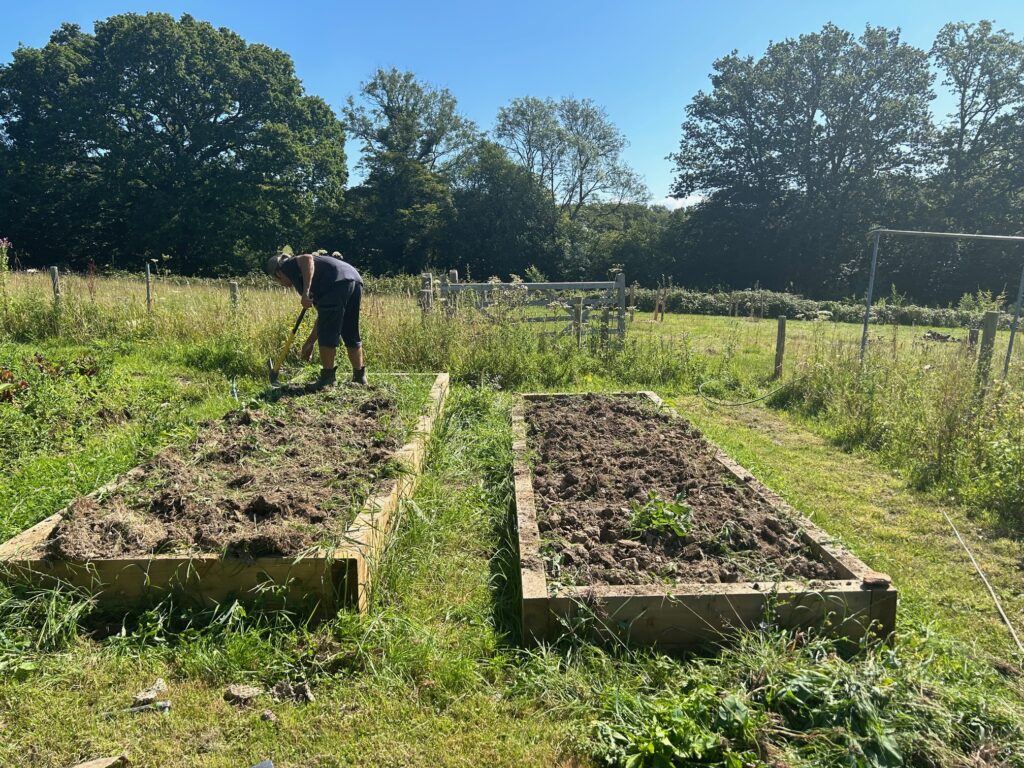
The community garden has reaped lasting rewards from the biodynamic teachings, from feeling a part of an active community and understanding the integrative nature of farming and growing within a small farm in the High Weald. They have understood the importance of biodiversity and the support of small mammals, reptiles and birds within their natural habitats as they play an important role in the fostering of growing well balanced and nutrition filled food.
Making Apple Cider Vinegar
For a little extra fun we ran an apple cider vinegar and Fire Cider workshop. Apple cider vinegar is fantastic for gut health, both for humans and farm animals, all our animals from sheep and pigs to dogs and chickens get apple cider vinegar in their water. This helps with a plethora of issues from imbalance to inflammation and parasites.
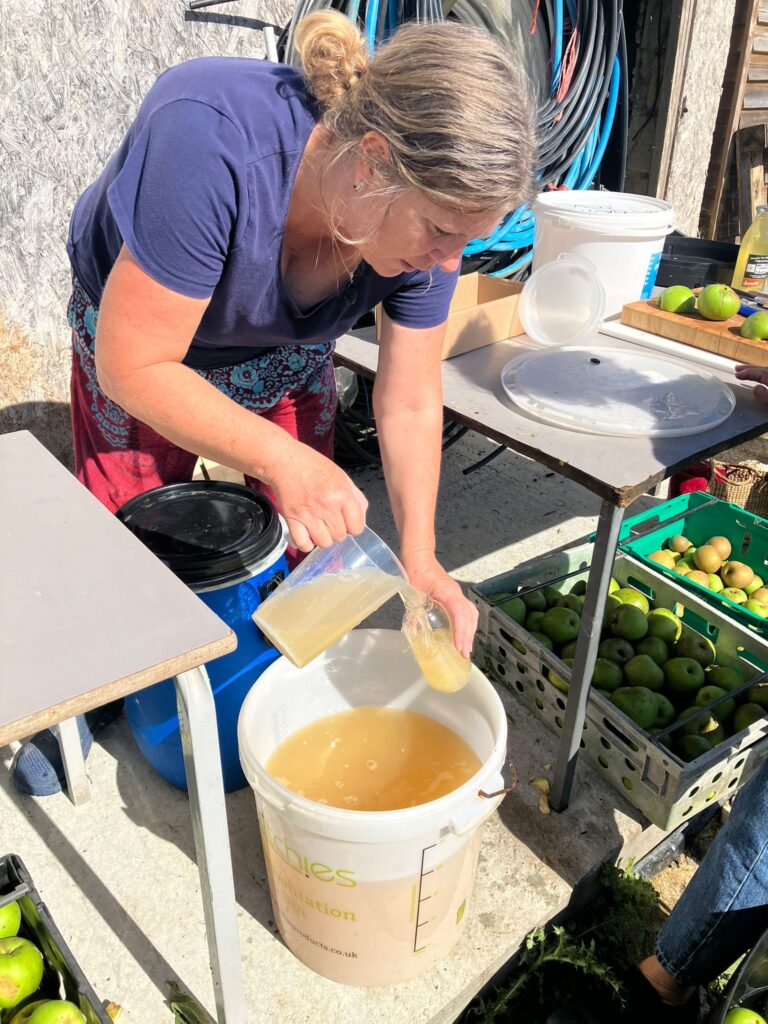
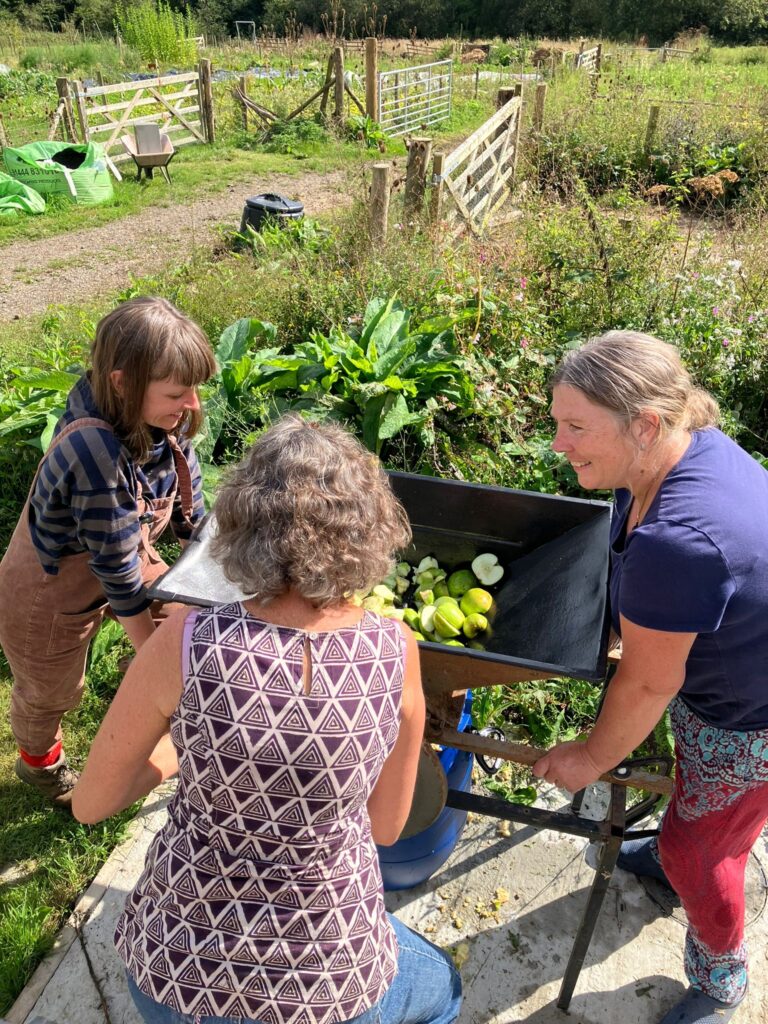
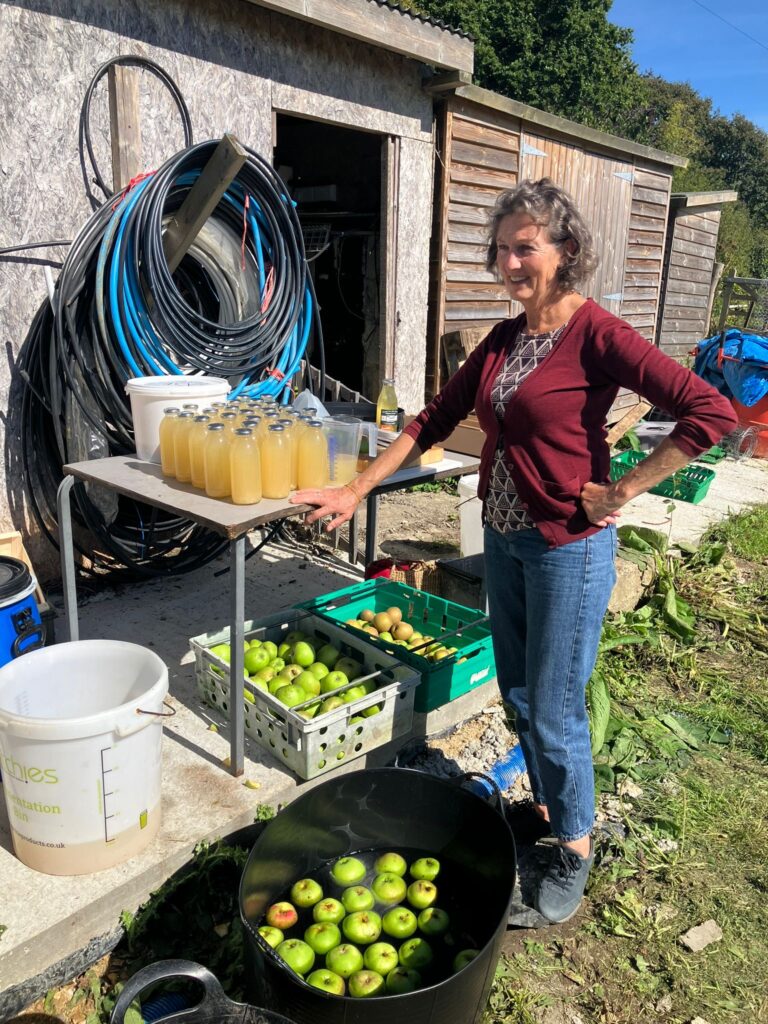
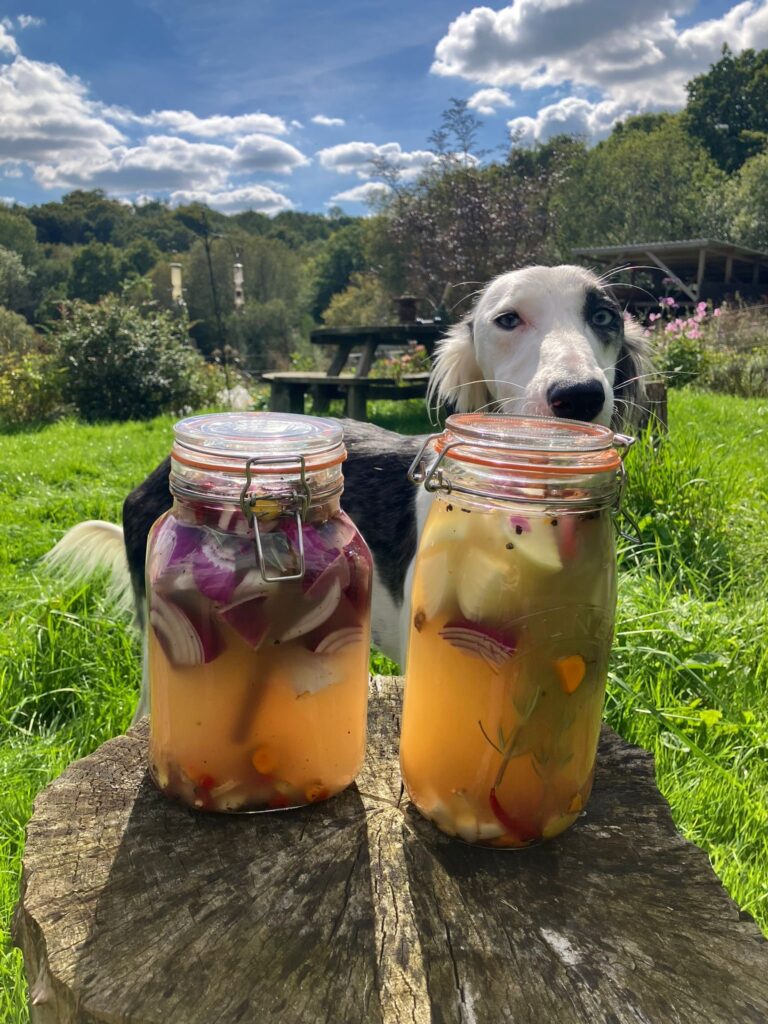
As with animals its just as good for humans to ward of colds and coughs, for arthritis and to build gut health back after a course of anti-biotics. For an extra kick we added chopped up onion, garlic, cinnamon, rosemary, chilis and star anise…’Fire Cider’
Plans on the Horizon
As this initiative was a pilot program, a core group of local individuals grew from these activities. We intend to grow medicinal herbs and veg together on a specific dedicated area in our apple orchard with Biodynamic and agroforestry principals, the cultivation of medicinal herbs alongside food production to meet the growing interest in self-care and holistic health practices. Plans also include offering more classes on biodynamic growing and farming, inviting guest instructors for herbal medicine workshops, crafting sessions centered around sustainable living practices, and courses on biodynamic/herbal/homeopathic animal husbandry specifically in relation to the High Weald Landscape setting.
We have resubmitted plans for a small farm shop which if successful we will be able to sell our products at full price rather than wholesale, this in addition to the workshop offer and the community gatherings will enable the survival of the small farm as a whole. This is a multifaceted approach to community building while also to support a small farm business to flourish.

